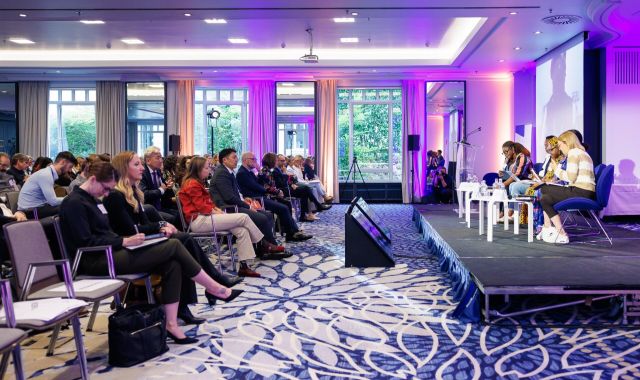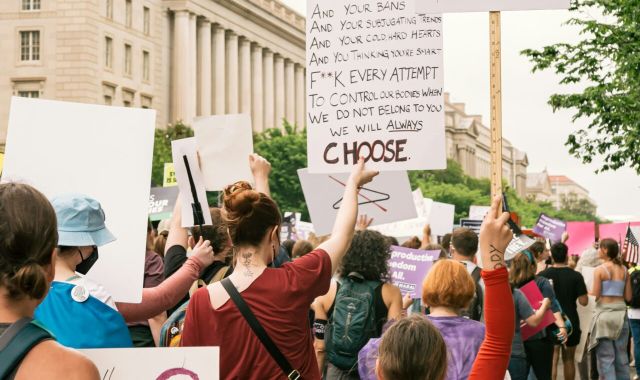Democracy and Inclusion in an Age of Insecurity: A Spotlight on Global Democracy Under Pressure
International Democracy Day 2025 in Brussels offered both a sobering reality check and a source of renewed inspiration. Over two days of high-level panels and lightning talks, some 400 democracy activists, organisations, academics and politicians from around the world debated how to strengthen democracy at a time of crisis. Both the powerful democratic resilience stories from across the globe and the data on deepening democratic backsliding and widening inequalities were a reminder of citizens’ resilience and their tireless fight for freedom and dignity, and the continuous need to pursue our mission of support for democracy. Inspiring stories of democratic resilience from the world
International Democracy Day 2025 brought to Brussels some of the most inspiring stories of change and resilience, reminding us, the democracy support community, why our mission matters. Emma Theofelus, Namibia’s Minister of Information and Technology, shared her country’s progress. Since 2009, there have been new quotas for female MPs, helping Namibia’s parliament reach 40% gender parity. Equally striking, young people now hold 30% of seats.
Raša Nedeljkov, Programme Director at the Center for Research, Transparency and Accountability (CRTA), recounted the extraordinary civic mobilisation in Serbia after the Novi Sad station canopy collapse. Students turned grief into a nationwide call for government accountability. Serbia shows that democracy does not survive on law alone—it needs people’s courage and aspirations for freedom.
Liudmyla Yankina, Co-Founder and Chairperson of Civis Fortis, described her NGO’s daily work to defend Ukrainian civil society and protect at-risk activists. She reminded us of the price many pay for speaking truth. Victoria Roshchyna, a Ukrainian journalist imprisoned, tortured and ultimately killed by the Russian state, showed the world the reality of life under occupation. Thanks to her work, it is now a documented fact that Russia enlists children in the military.
What the data says
Yet these stories must not be romanticised. Across Africa, many women and young people still struggle to mobilise resources, facing mistrust, misogyny and exclusion. In Serbia and elsewhere, dissent is often met with batons. In Russia, countless journalists and activists remain imprisoned and tortured.
Kevin Casas Zamora, Secretary General of International IDEA, gave us a stark warning: the principle of democracy as equality of rights is under attack in two ways.
First, far-right narratives have normalised the rejection of equality promotion and diversity. Inclusive participation and the protection of minority rights are increasingly portrayed not as a strength of democracy, but as a perversion of it. As a democracy support community, we have a duty to counter this narrative.
Second, we are living in a time of profound inequality. This fuels growing discontent with democracy, which many feel is no longer delivering as promised. Today, the richest 1% own more wealth than 90% of humanity combined. Multinational corporations reward their CEOs with more money than they pay in taxes. These practices enshrine inequality and push democracy even further out of reach. The democracy support community must confront the deep sense of unfairness that follows.
There is a long way to go in ensuring meaningful youth political inclusion. Our recently launched Global Youth Participation Index found that there is still a widespread lack of information addressing young people on most government websites, and persistent systemic barriers to youth inclusion, political representation and leadership.
More generally, according to International IDEA’s Global State of Democracy Report 2025, declines in democracy are mainly concentrated in the areas of representation, human rights and the rule of law. Despite some notable advances — Brazil and Poland delivered democratic progress through electoral change — there have been global declines in electoral integrity, parliamentary effectiveness and press freedom. In the rule of law area, advances were registered only in the absence of corruption, with the most striking decline in performance registered in Europe.
Yet, beyond the numbers, citizens’ resilience offers hope. Civic movements have changed over the last decade, with an increase in social activism in the 2010s. Protests have been prominent, and not only do these movements use social media, but also wider online and offline tactics to spread their message. However, donors have struggled to adapt to these changes: civil society has become more fragmented and diverse. Part of the challenge for funders continues to be how to build bridges with new types of grassroots organisations.
Testimonies and data underline one essential truth: that supporting democracy is vital for future generations, and for a world where all share freedom.
What tools can we use right now?
With the first day devoted to case studies and experiences from the field, the second day of International Democracy Brussels moved on to look at the future of democracy support, and its role in Europe’s soft power, security and future vision.
With the United States stepping back from its traditional role in democracy support, the European Union must defend democratic values at home and abroad. While the US gap may not be filled financially, the EU can still lead by upholding its principles and continuing to work closely with the democracy support community.
Panellists outlined three key priorities:
- Rethink support measures. Assistance must be designed carefully to avoid causing more harm than good. Flexibility is essential: facilitating quick responses along with small, urgent grants that help civil society organisations survive in times of crisis. Increasing grants to strengthen national civil society would help ensure that demand-driven initiatives and home-grown structures have agency and a core role to play.
- Invest strategically through the next EU Budget. The upcoming Multiannual Financial Framework (MFF) for 2028–2034 is a crucial opportunity to mainstream democratic values across all policies. At a time when security agendas and hyper-militarisation are gaining ground, the EU must remember that democracy itself is the Union’s most valuable public good. Resilient democracies make the international environment safer and more peaceful.
- Strengthen global partnerships. Democracy cannot survive in isolation. To succeed, it must be nurtured across borders, regardless of religion, colour, or gender. The EU and its partners must deepen cooperation, coordinate their actions, and present a united front against global threats.
Looking ahead
All of us in the EPD network are taking stock of the valuable lessons from these two days of exchange. Together with the entire European democracy support community, we will work to embed democracy across different European policies, strengthen inclusion, and ensure that all relevant actors have a seat at the table.
Democracy is not self-sustaining — it requires investment, solidarity, and courage, as voiced by all the passionate participants at this year’s International Democracy Day. The conversations in Brussels remind us that defending democracy is both a responsibility and an opportunity to secure rights, build resilience, and shape a more just and peaceful world.
International Democracy Day Brussels is organised every year thanks to the joint effort of Carnegie Europe, the European Network of Political Foundations (ENoP), the European Endowment for Democracy, the European Partnership for Democracy and International IDEA.


